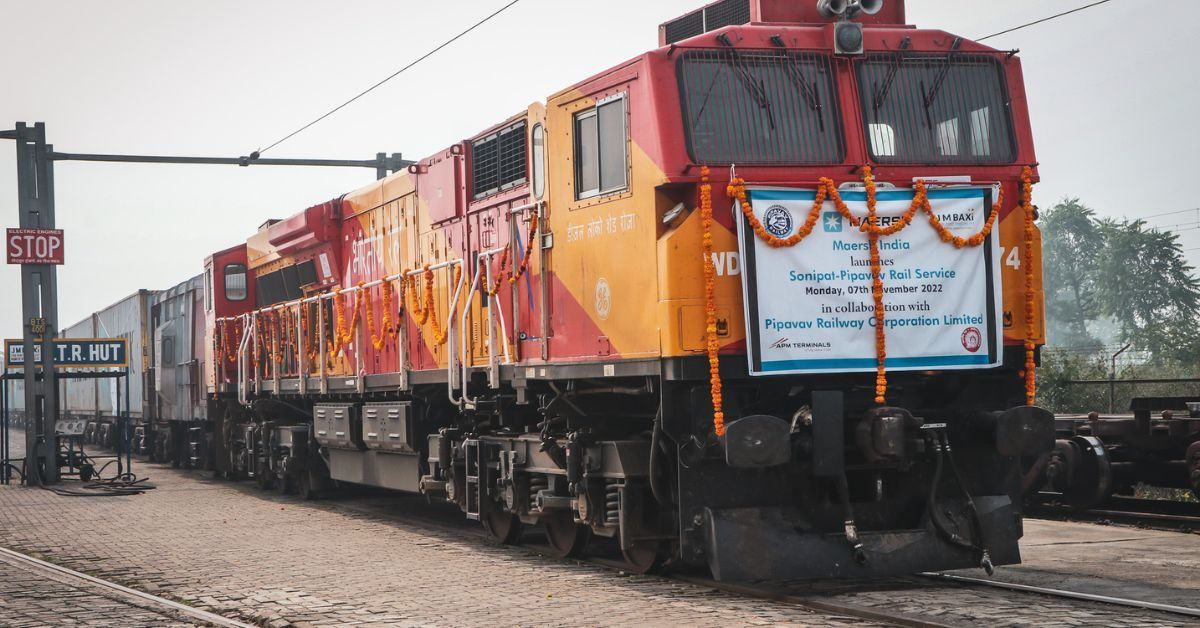A.P. Moller – Maersk (Maersk), the integrated logistics company, continues to design and implement logistics solutions that address the ever-evolving needs of its customers. Building further on its strong commitment towards developing a robust rail service network in India, Maersk flagged off yet another weekly, dedicated rail service, the ‘Pratigya Express’, from Sonipat Inland Container Depot (ICD) in NCR to APM Terminals Pipavav Port on the western coast of India in Gujarat.
“The NCR is abundant with retail and rice exporters who need a regular connection from their manufacturing facilities to the consumers in the western market. Through our dialogues with our customers, we realised that they faced two challenges – either they don’t have a fixed schedule for departure from Sonipat ICD, and once they get it, they do not necessarily make it to the right vessel connection at the port,” said Major Jyoti Joshi Mitter, Head of Rail, Maersk India. She added, “Our ambition was to address both these problems with a single solution – we launched a dedicated weekly rail service that gives the exporters a fixed visibility on departure from the origin and then connects to a fixed vessel connection at the APM Terminals Pipavav Port.”
The ‘Pratigya Express’ will move cargo from Sonipat ICD to APM Terminals Pipavav Port with a transit time of two and half days. From there, the cargo will have the option to connect on services such as the Shaheen Express, which will be launched in the coming days or the MECL. Both of these services will then be able to take the cargo to the Middle Eastern or European markets. Studies show that cargo moved on rail instead of road has advantages in terms of both cost-savings and time-savings. These two benefits eventually also contribute to reducing carbon footprint. Maersk’s new ‘Pratigya Express’ service on the Western Dedicated Freight Corridor (DFC) will move 90 TEUs (twenty feet equivalent units of containers) every week. APM Terminals Pipavav Port also plays an important role by being the first port to be connected to the DFC and has excellent connectivity to the hinterland through its rail head and road infrastructure.






